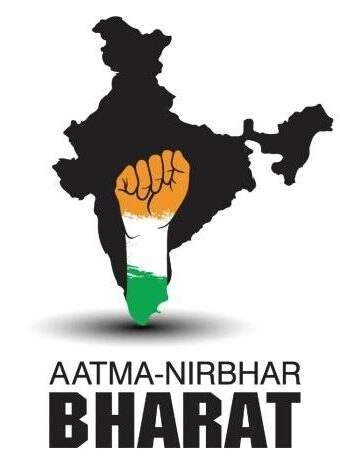There is no doubt that the textile industry is growing day by day; in every corner of the world. Along with the growth, there is a lot of competition now. If any amateur wishes to join the race, then it might be a little challenging to cope with the heat. That is where government schemes and initiatives might help.
Various initiatives and steps have been taken by the Government of India to enhance the Textile Industry:
1. Atmanirbhar Bharat
The last few years have been tough, but they have taught us essential things in life; self-reliance and self-dependency. Being Atmanirbhar. The terrors of the world have taken a toll and compelled our generation to take things into their hands and not be dependent on anything or anyone. The Prime Minister of India introduced us to Atmanirbhar Bharat to motivate Indian manufacturers and boost exports.
Although the Indian sector is in a good position with sufficient raw materials, affordable local labor, a good client base, an effective supply chain, and huge networking, there is still a long way to go to the top. This is where government support comes into action.
As part of the Atmanirbhar 3.0 package, a significant chunk of Rs. 1.45 lakh crores was allotted to boost manufacturing sectors, including textiles. Finance Minister Nirmala Sitharaman also proposed a National Technical Textile Mission with an outlay of Rs 1,480 crore over four years to cut down on imports. Around two years ago, she also announced Rs 27,300 crore of allocations for developing and promoting industry and commerce, including textiles. This financial boost at the right time is helping the production and the morale of the Indian textile industry.


2. Packages to Boost the Textile Sector
The Rs. 6000 crores special package for the textile and apparel sectors was launched in June 2016 to boost employment and export potential in the apparel and made-up segments. This not only helped in the development of the sector but also motivates the people adhering to it to work in more effective and efficient ways.


3. Integrated Processing Development Scheme (IPDS)
To facilitate the textile industry to meet the required environmental standards and support the construction of new common effluent treatment plants (CETP) or upgrade of CEPTs in existing processing clusters and new processing parks, especially in the coastal zones.
Conclusion:
Devika Fibres is one of the leading textile industries in India; manufacturing polyester yarn, ATY Yarn, and DTY Polyester yarn. We understand and respect the vitality of schemes and the help we receive from the government; we believe that it is beneficial because of the growing competition in this industry, and a helping hand from the government can do wonders.
